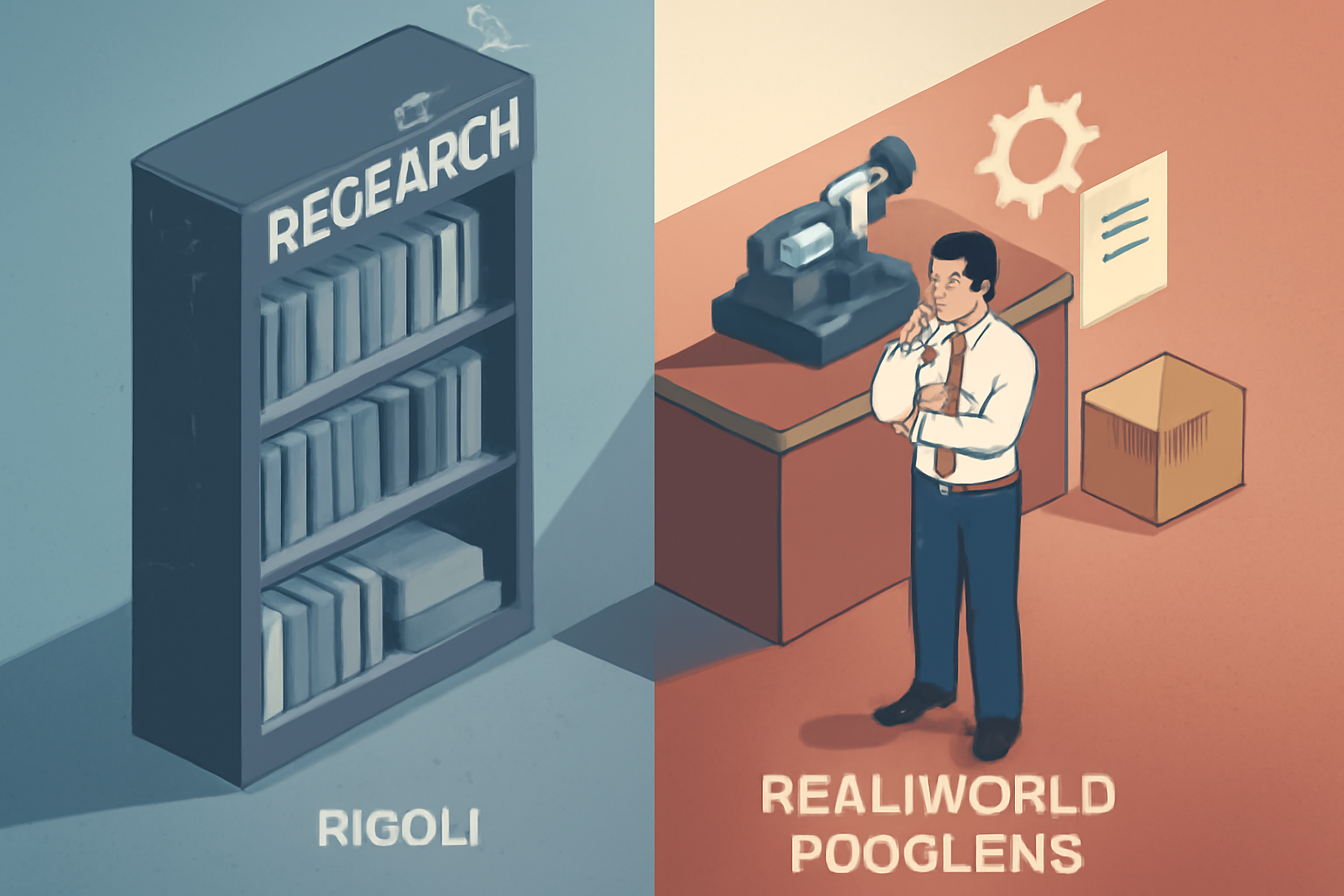
Academic research often remains confined within scholarly journals, creating a utility gap where its findings are underutilized by small business owners who could benefit from practical insights to inform decisions. This gap arises due to several factors, including the highly specialized language used in academic writings, limited access due to paywalls, and the disconnect between theoretical research subjects and real-world business challenges.
Theoretical frameworks and models presented in journal articles can offer profound insights into market behaviors, consumer trends, and operational efficiencies. However, translating this knowledge into actionable strategies requires synthesis and adaptation to specific business contexts, which is seldom addressed by academics who focus on generalizability and methodological rigor.
Small business owners navigate a dynamic marketplace where understanding sector-specific behaviors, such as the impact of digital trends or changing consumer preferences, is crucial. They need practical, empirically-based insights that can guide product development, marketing strategies, and competitive positioning. Therefore, closing the utility gap necessitates a concerted effort to bridge academia with entrepreneurship through accessible publications, dissemination of synthesized insights, and fostering collaborations between researchers and business practitioners.
Translation efforts could include creating accessible summaries of scholarly articles, developing open access platforms for business-focused research, and encouraging engagement between academics and industry stakeholders to ensure research addresses pertinent business issues. By fostering such connections, the potential for academic research to positively impact small business strategy and growth becomes significantly more attainable, ensuring that valuable insights do not remain dormant within the confines of academia.